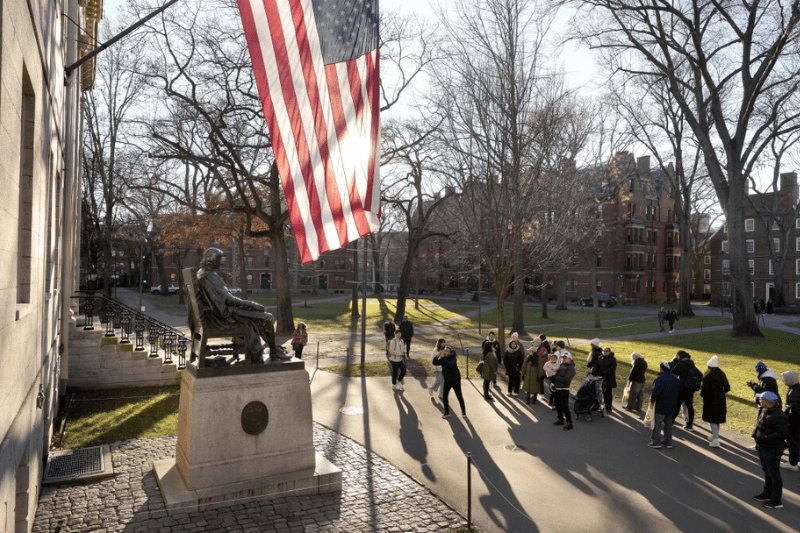
Jewish Students Sue Harvard: Alarming Campus Antisemitism
In a recent legal development, several Jewish students have taken a bold step by filing a lawsuit against Harvard University, alleging that the institution has transformed into, in their words, “a bastion of rampant anti-Jewish hatred and harassment.” This lawsuit, mirroring similar actions against various educational institutions since the October 7 Hamas attack on southern Israel, raises profound concerns about the rise of antisemitism on college campuses.
Background: The Fallout from the Israel-Hamas War
The lawsuit stems from a series of disturbing incidents following the Hamas attack, triggering a massive military response from Israel. As the Israeli government strives to dismantle Hamas, the repercussions have reverberated across campuses, turning academic spaces into arenas for geopolitical tensions.
Allegations Against Harvard
The plaintiffs, including members of the Students Against Antisemitism, assert that Harvard has violated Jewish students’ civil rights. They allege that the university not only tolerated but also allowed harassment, assault, and intimidation against Jewish students, actions that intensified after the October 7 mass killing. The lawsuit paints a grim picture, describing mobs of pro-Hamas students and faculty marching through Harvard’s campus, shouting antisemitic slogans and calling for harm to Jews and Israel.
Unpacking the Lawsuit
While the mention of “mobs” in the lawsuit might be subject to interpretation, it underscores the heightened tensions on campus. Pro-Palestinian students occupied a campus building for 24 hours, reflecting the intensity of emotions and the clash of perspectives. Marc Kasowitz, a partner at Kasowitz Benson Torres, the law firm handling the suit, states that litigation became necessary as Harvard allegedly refused to address its deep-seated antisemitism voluntarily.
Keep Reading
Harvard’s Response
Harvard, in response, has chosen not to comment on pending litigation. However, the spokesperson acknowledged that about a dozen students might face disciplinary charges related to pro-Palestinian activities, emphasizing the complexity of balancing free speech and ensuring a safe and inclusive environment.
Broader Campus Antisemitism Debate
The lawsuit against Harvard is not an isolated incident but part of a broader nationwide debate over campus antisemitism. The fallout from the Israel-Hamas war has sparked discussions around free speech, with college leaders grappling to define the line between political speech and harassment. Jewish and Arab students have raised concerns about insufficient protection on campuses.
Congressional Hearing and Resignations
The issue gained prominence when the presidents of Harvard, Penn, and MIT testified at a congressional hearing on campus antisemitism. Their responses, carefully navigating the delicate balance between free speech and preventing discrimination, led to weeks of backlash from donors and alumni. The aftermath saw the resignation of Liz Magill at Penn and Claudine Gay at Harvard.
Department of Education’s Warning
The U.S. Department of Education has repeatedly warned colleges about their obligation to combat antisemitism and Islamophobia on campuses, underscoring potential consequences, including the risk of losing federal funding.
As the legal battle unfolds, this lawsuit against Harvard is emblematic of larger societal challenges and tensions that have found their way onto college campuses. The need for nuanced discussions, inclusive environments, and a commitment to addressing complex issues becomes increasingly apparent.




